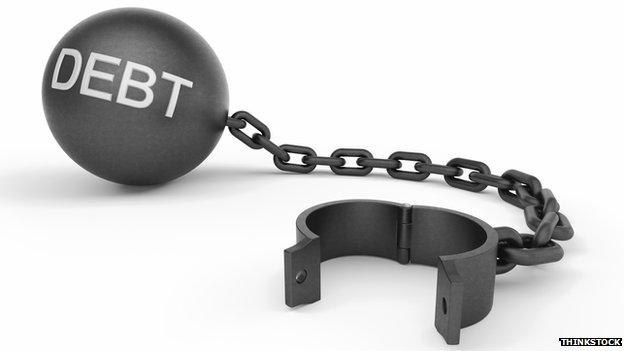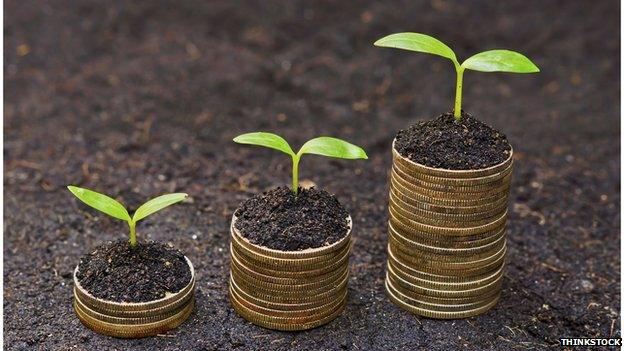How can inflation be good for you?
- Published

So, the governor of the Bank of England, Mark Carney, is filling his fountain pen, and looking for a stamp.
Now that inflation has fallen to 0.5% on the Consumer Prices Index (CPI) measure, he's got to write a letter to the chancellor, explaining why inflation has missed the Bank's target of 2% by more than one percentage point.
But why on earth should he be writing to George Osborne to apologise, when low inflation looks so attractive?
For example, falling oil prices will probably mean that the average British motorist will save around £140 this year. What he or she doesn't spend on petrol - perhaps £4bn in total - is likely to be spent elsewhere, so boosting the economy in other ways.
So if falling prices are good for individuals and the economy, how can inflation also be beneficial?

How does inflation stimulate the economy?
In the example of falling oil prices, the motorist probably doesn't have much choice as to whether to buy petrol or not. But imagine if the price of the car itself were to start falling. Instead of buying yourself a new car this year, why not buy it next year, when it might be hundreds of pounds cheaper? A little inflation encourages you to buy sooner - and that boosts economic growth.

Why should borrowers love inflation?

Anyone with a mortgage or a loan benefits from inflation, as it has the effect of eroding debt. In the 1960s my father bought a house for £11,000. But with inflation peaking at around 13% in the late 70s, his wages were rising fast too - meaning the mortgage repayments were taking an ever smaller share of his income. By contrast, deflation - or falling prices - increases the real value of debts. Not a good place to be.

What effect does inflation have on wages?
Rising prices make it easier for companies to put up wages. They also give employers the flexibility not to increase wages by as much as inflation, but still offer their staff some sort of rise. In a world of zero inflation some companies might be forced to cut wages.
That would not be good for morale, recruitment or productivity. For most of the last five years inflation has been running ahead of wage rises, but thanks to inflation, wages have also been rising, even if the money doesn't go as far.

Why does the government like inflation?

The government has a huge debt, which is getting bigger thanks to a deficit of £90bn. It would dearly love to see that eroded by inflation, which in turn would see its own income rise. As long as there's a good dose of inflation in the system, tax revenue should go up, even if the economy is stagnant.

But why is too much inflation bad?
When inflation is too high of course, it is not good for the economy or individuals. Inflation will always reduce the value of money, unless interest rates are higher than inflation. And the higher inflation gets, the less chance there is that savers will see any real return on their money. Although in theory that should be good for the economy, by encouraging people to spend rather than save.
High inflation - as Gordon Brown used to remind us when he was chancellor - is also a cause of boom and bust in the economy. It therefore produces low growth and higher unemployment.
If inflation in the UK exceeds that of other countries, it can also erode competitiveness.

So what inflation rate is good?

Most central banks favour an inflation target that is in the region of 2% to 2.5%. The Bank of England's target of 2% under the CPI measure is fairly typical. Some economists argue there should be a higher target in times of recession, such as 3%. This can promote higher growth, by keeping interest rates lower for longer.
But whatever the precise level, most do agree that a little dose of inflation is absolutely essential.
"The most important thing to remember is that inflation is not an act of God, that inflation is not a catastrophe of the elements or a disease that comes like the plague," said the Austrian philosopher and economist Ludwig von Mises.
"Inflation is a policy."